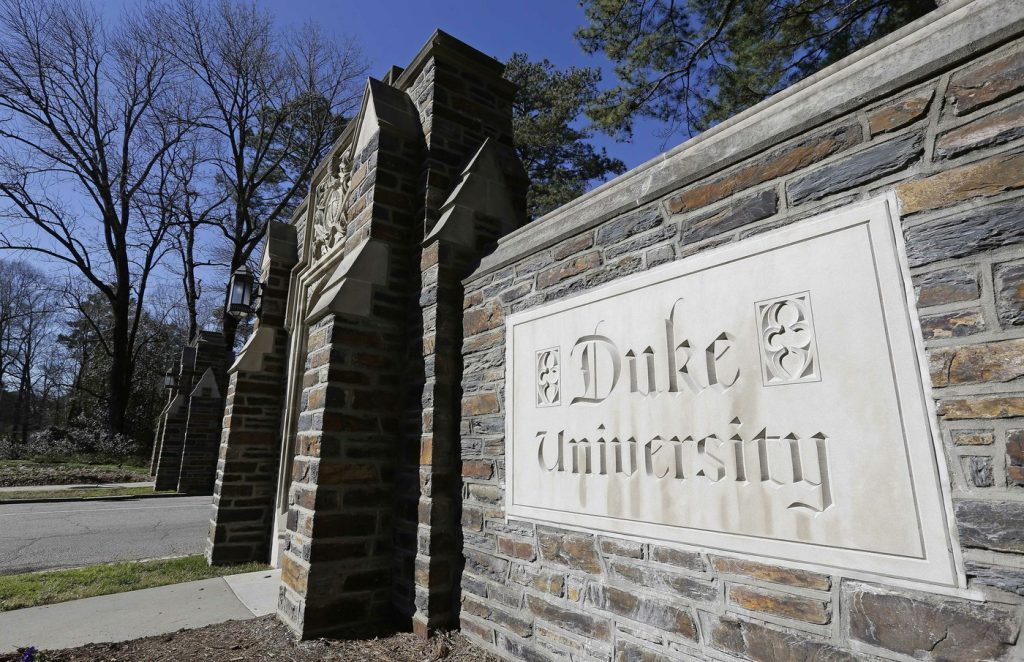On Wednesday, it was reported that the Trump administration has imposed a freeze on $108 million in research funding designated for Duke University. This decision follows allegations from the federal government stating that the institution is engaging in racial discrimination through its affirmative action policies. The National Institutes of Health (NIH) announced the funding halt in response to a joint letter issued by the Department of Health and Human Services (HHS) and the Education Department earlier that week, which accused Duke of racial biases in its hiring and admissions processes.
Duke University, located in North Carolina, is the most recent institution to face scrutiny regarding its federal funding amid ongoing investigations into claims of antisemitism and unlawful diversity, equity, and inclusion (DEI) practices. This follows similar investigations at prestigious institutions such as Harvard, Columbia, and Cornell. Responding to the HHS and Education Department's claims, Duke has yet to make a public comment on the matter.
The letter from the HHS and Education Department characterized Duke's practices as "vile racism," citing accusations of racial preferences across various areas, including recruiting, admissions, and scholarships. While the correspondence pointed to the existence of such discrimination, it did not provide detailed examples. The letter emphasized the damaging impact of racism, particularly when embedded within respected institutions, and threatened Duke with the cessation of federal funding if the allegations are substantiated.
As part of its directives, the federal agencies ordered the university to immediately cease any practices within its health system that grant advantages based on race. Given concerns about Duke's ability to conduct an objective review, the letter also proposed the establishment of a new Merit and Civil Rights Committee. This committee, which would require approval from the government's oversight, aims to evaluate and eliminate any racial preferences at the university. If issues persist after a six-month period, the administration indicated it would pursue legal action.
In a separate but related move, the Education Department has launched an investigation into the Duke Law Journal, focusing on allegations of preferential treatment toward prospective editors belonging to underrepresented groups. This comes as the Trump administration amplifies its campaign against DEI practices, which it has branded as discriminatory against white and Asian American individuals.
Utilizing federal research funding as leverage, the Trump administration has sought to reshape the practices within universities, which it has described as "hotbeds of liberalism." This has sparked significant challenges for institutions that heavily rely on federal grants, prompting some universities to incur debt and explore alternative funding solutions for their research initiatives. According to university data, Duke University allocated $1.5 billion for research in the previous year, with nearly 60% coming from federal sources.
Moreover, Duke's financial condition has become precarious, even prior to the latest funding freeze. University officials recently announced that approximately 600 employees accepted voluntary buyout offers, although layoffs are still anticipated due to financial pressures stemming from uncertainties surrounding federal funding and an increase in the university's federal endowment tax.
The escalating pressure from the Trump administration aims to create agreements similar to the one reached with Columbia University, which recently consented to a $200 million settlement and adopted various changes in admissions and hiring policies while regaining access to federal funds. Such negotiations are ongoing with other institutions, including Harvard, amid its legal disputes with the administration.











